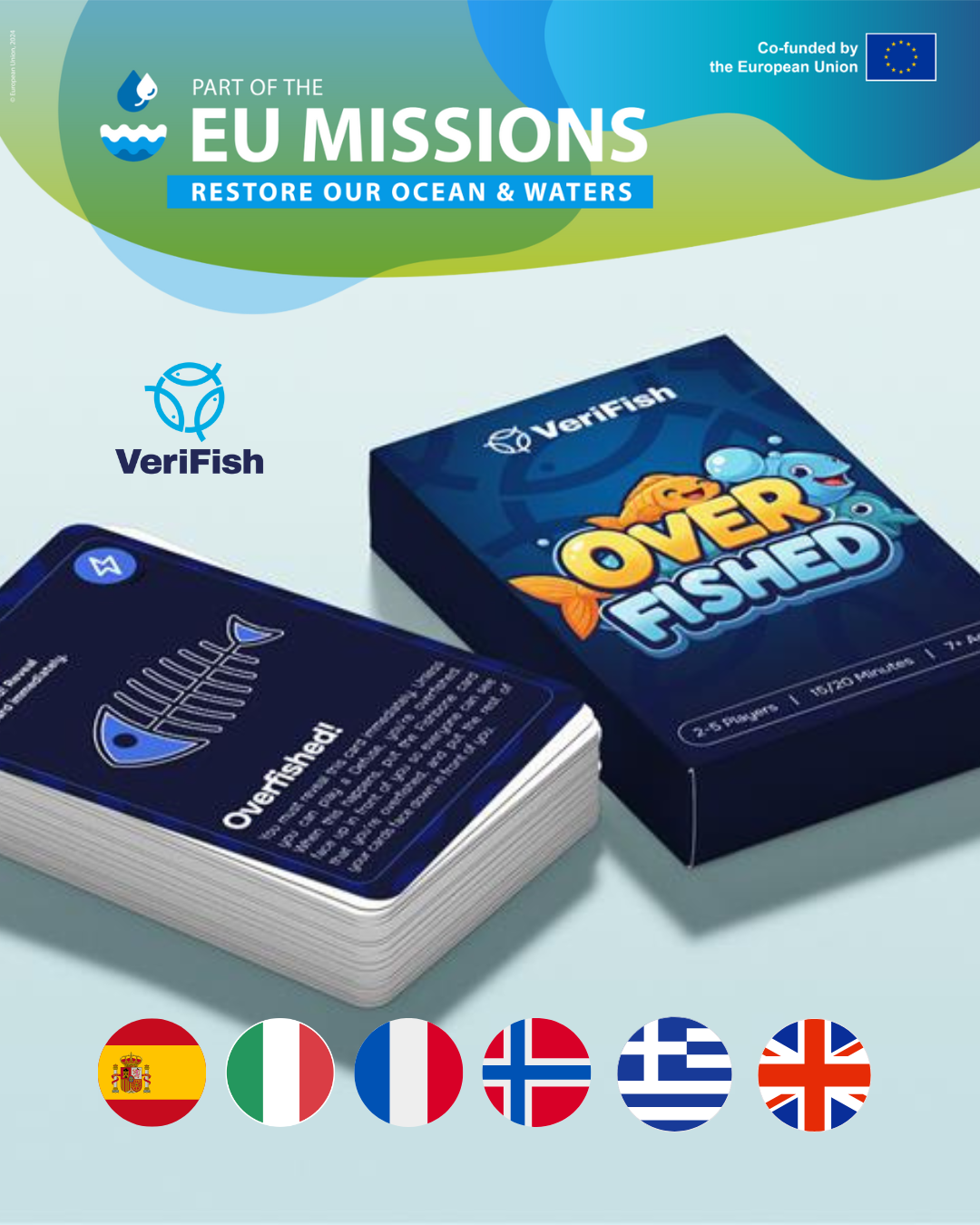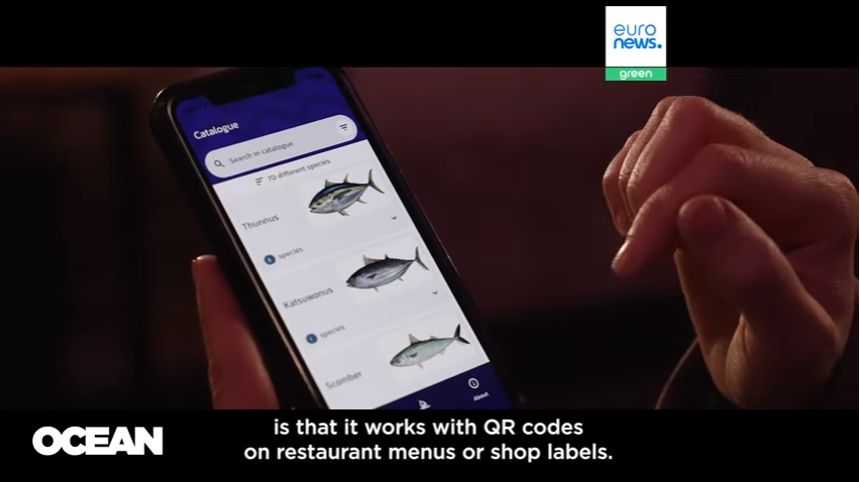We are pleased to announce that VeriFish has been officially accepted as a Mission Charter Action under the European Union’s flagship Mission “Restore our Ocean and Waters by 2030”.
This distinction recognises VeriFish as a key contributor to the EU’s collective effort to protect and restore aquatic ecosystems, eliminate pollution, and foster a sustainable, circular blue economy. As a Horizon Europe-funded project, VeriFish aligns closely with the Mission’s transformative vision for Europe’s seas, oceans, and inland waters — and we are proud to play an active role in supporting its goals.
🔗 Visit the dedicated page to learn more
What Is the EU Mission “Restore our Ocean and Waters”?
The EU Missions are bold, impact-driven initiatives under the Horizon Europe programme, designed to tackle some of the greatest challenges facing our society. The Mission “Restore our Ocean and Waters” focuses on achieving measurable progress in:
- Protecting and restoring marine and freshwater ecosystems and biodiversity, in line with the EU Biodiversity Strategy 2030
- Preventing and eliminating pollution of aquatic environments, aligned with the Zero Pollution Action Plan
- Making the sustainable blue economy carbon-neutral and circular, supporting the European Green Deal and Climate Law
The Mission also promotes collaboration, knowledge-sharing, and public participation through the Mission Charter — a voluntary commitment by organisations and projects contributing directly to these objectives.
What Does It Mean to Be a Mission Charter Action?
By being accepted as a Mission Charter Action, VeriFish has committed to:
✅ Supporting the EU Ocean Knowledge System and respecting FAIR principles (Findable, Accessible, Interoperable, Reusable) in our data
✅ Involving citizens and stakeholders in the co-creation of solutions and decisions
✅ Stimulating investment from public and private sources
✅ Collaborating with other Mission actors to share knowledge and maximise impact
✅ Contributing to the monitoring and steering of progress towards the Mission’s 2030 goals
How VeriFish Contributes
VeriFish is pioneering the development of a science-based indicator framework for seafood sustainability — integrating environmental, nutritional, and socio-economic dimensions to support responsible production and consumption of wild-caught and aquaculture products.
Key contributions to the Mission include:
🔹 A transparent and harmonised tool to evaluate seafood sustainability across supply chains
🔹 A mobile app and digital tools to empower consumers, retailers, and policymakers to make informed, verifiable choices
🔹 Promotion of data interoperability and traceability, aligned with EU digital and green transformation strategies
🔹 Engagement with coastal communities, producers, and science-policy interfaces to co-create sustainable governance solutions
Why This Matters
Sustainable seafood isn’t just about marine health — it’s about climate action, food security, rural livelihoods, consumer trust, and international cooperation.
By joining the Mission’s community of action, VeriFish reinforces its commitment to:
- Scientific rigour and policy alignment
- Practical innovation that serves producers and consumers alike
- Collaborative governance rooted in transparency and trust
Stay Connected
VeriFish will continue to align its work with the Mission’s evolving priorities, and to contribute actively to the Mission’s visibility and outreach.
You can explore more about our mission-aligned activities and indicators on our dedicated page:
🔗 VeriFish Recognised by the EU Mission “Restore our Ocean and Waters by 2030” – VeriFish
We also invite fellow Mission Charter actors and stakeholders to reach out, collaborate, and co-develop tools that help restore our ocean and waters — for people, planet, and prosperity.
Contact us:
📧 info@verifish.info
📣 Follow us on social media for updates, tools, and field stories.
#MissionOcean #VeriFish #RestoreOurOceanAndWaters #HorizonEurope #SustainableSeafood #BlueEconomy #FAIRData #SeafoodIndicators #EUProjects #AquaticFood #OceanMissionCharter



